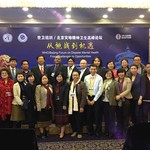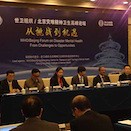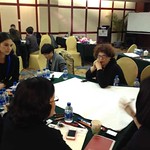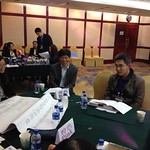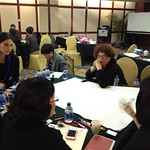China
Disaster Mental Health: From Challenges to Opportunities
November 4, 2013
Asia Australia Mental Health has partnered with China’s Ministry of Health and the World Health Organisation to co-host the “Disaster Mental Health: From Challenges to Opportunities” forum and training program from 29-31 October 2013 in Beijing.
Disaster mental health stakeholders from around the Asia-Pacific attended the symposium and workshop, including 100 participants from across China, and 30 international representatives from Japan, Korea, Laos, Fiji, Vietnam, Philippines, Indonesia, Brunei, Malaysia, Myanmar, Thailand and Australia.
The training program was based on China’s experiences in managing several recent disasters, including the devastating Sichuan earthquake in 2008.
AAMH has been involved in collaborating with Peking University Institute of Mental Health partners in jointly creating several of the training programs including the Protecting Children in Disasters project, carried out between 2007 and2008.
This training program represents a major shift in the way the region approaches disaster mental health. The specialized training draws on localized experience that reflects culture and context.
The 3-days traversed a range of topics including
- organization of psychosocial crisis intervention,
- children in disasters,
- post-disaster mental health systems,
- mental health responses at various emergency stages,
- working with the media post-disasters.
Key principles for psychological intervention emerged from the training program including:
- Do no harm in all interventions.
- Maintain good mental health and self-care for workers, volunteers and survivors.
- Prevent further harm to self or others among the survivors.
- Promote resilience by strengthening personal resources and community support.
- Grief is universal in disaster but is highly variable in its presentation and duration. It is critical therefore to adjust individual psychological crisis intervention and psychosocial support, in line with the pace and readiness.
- Maintain empathy, understanding, careful listening and clear communication, including providing adequate personal space, and ensuring safety for those who have suffered significant losses.
It also emerged during the 3-days that opportunities exist during a crisis;
- To incorporate disaster mental health work in clinical work
- To conduct research when engaging in disaster work
- To use disaster to build and improve mental health care system
Participants from Fiji, Indonesia, Laos, Mongolia, Philippines, Thailand and Vietnam were supported by the International Seminar Support Scheme under AusAID.


